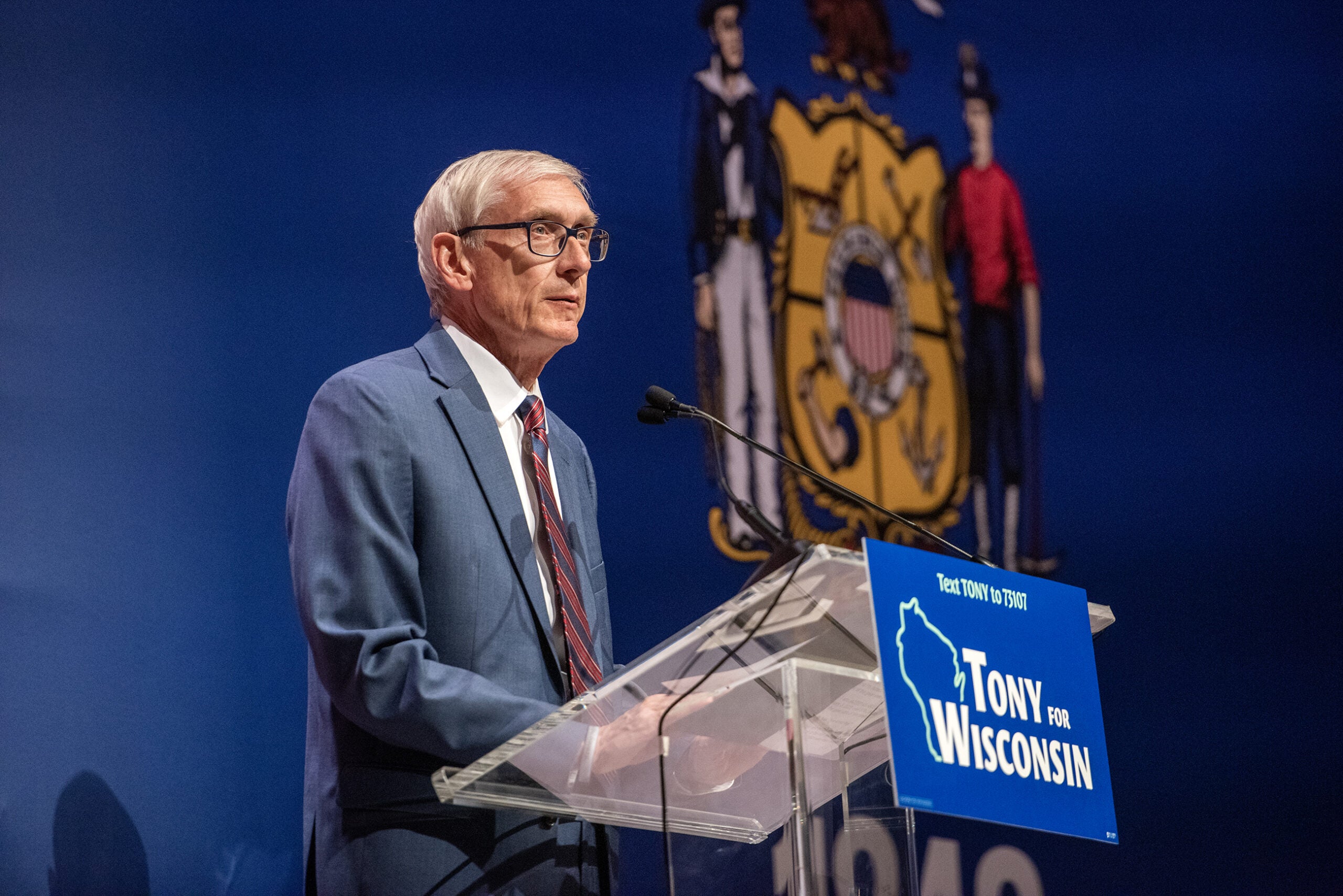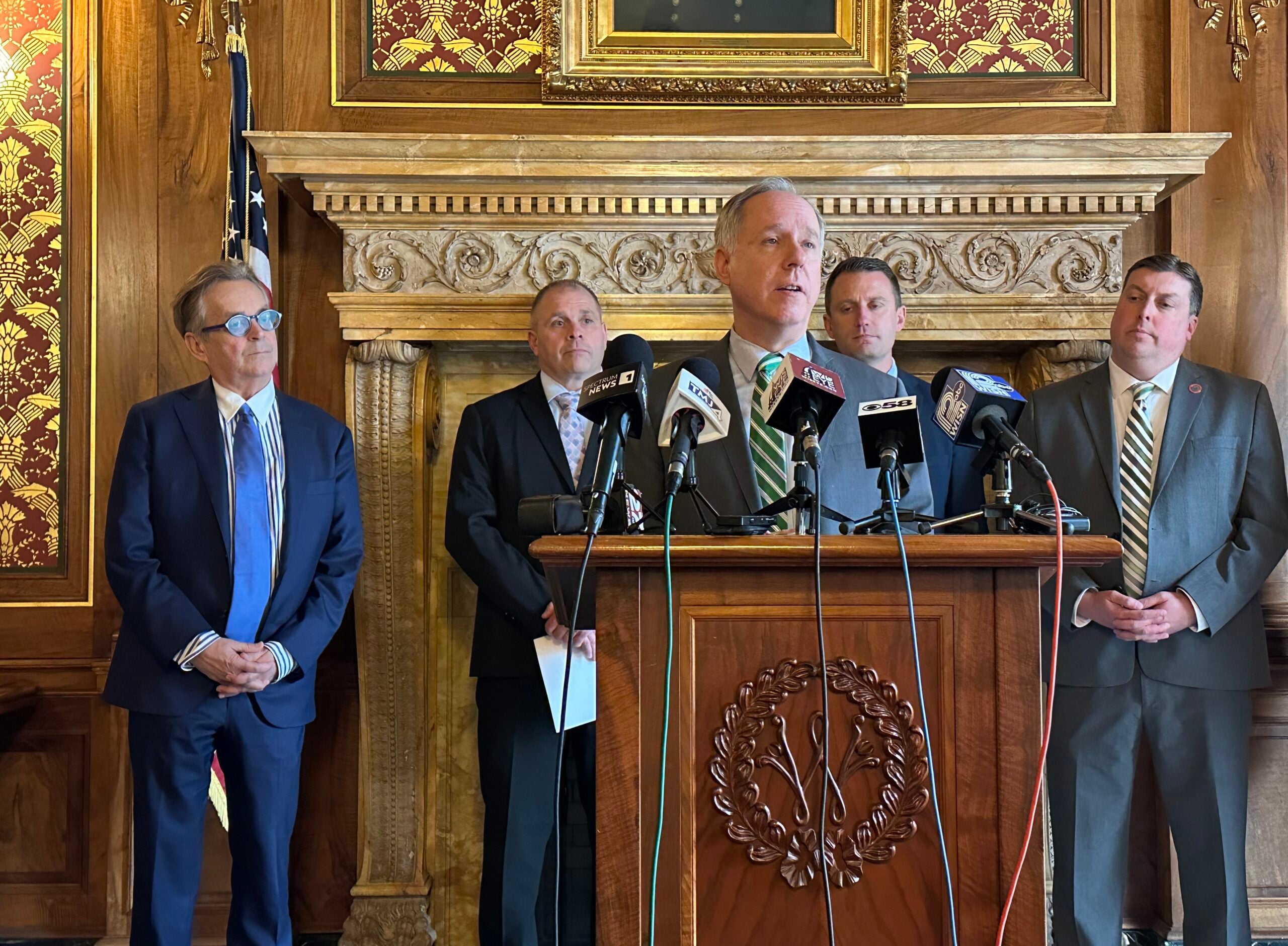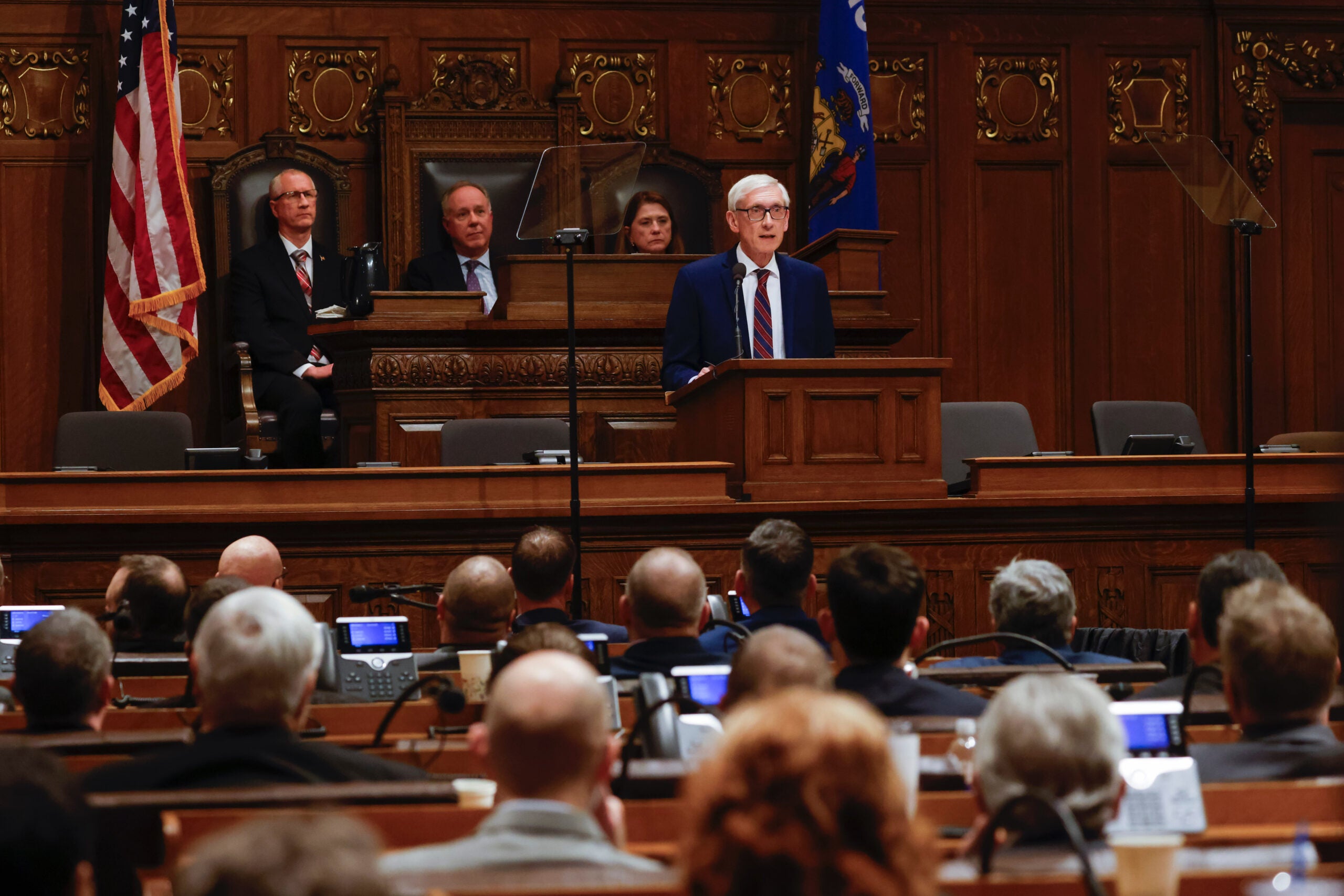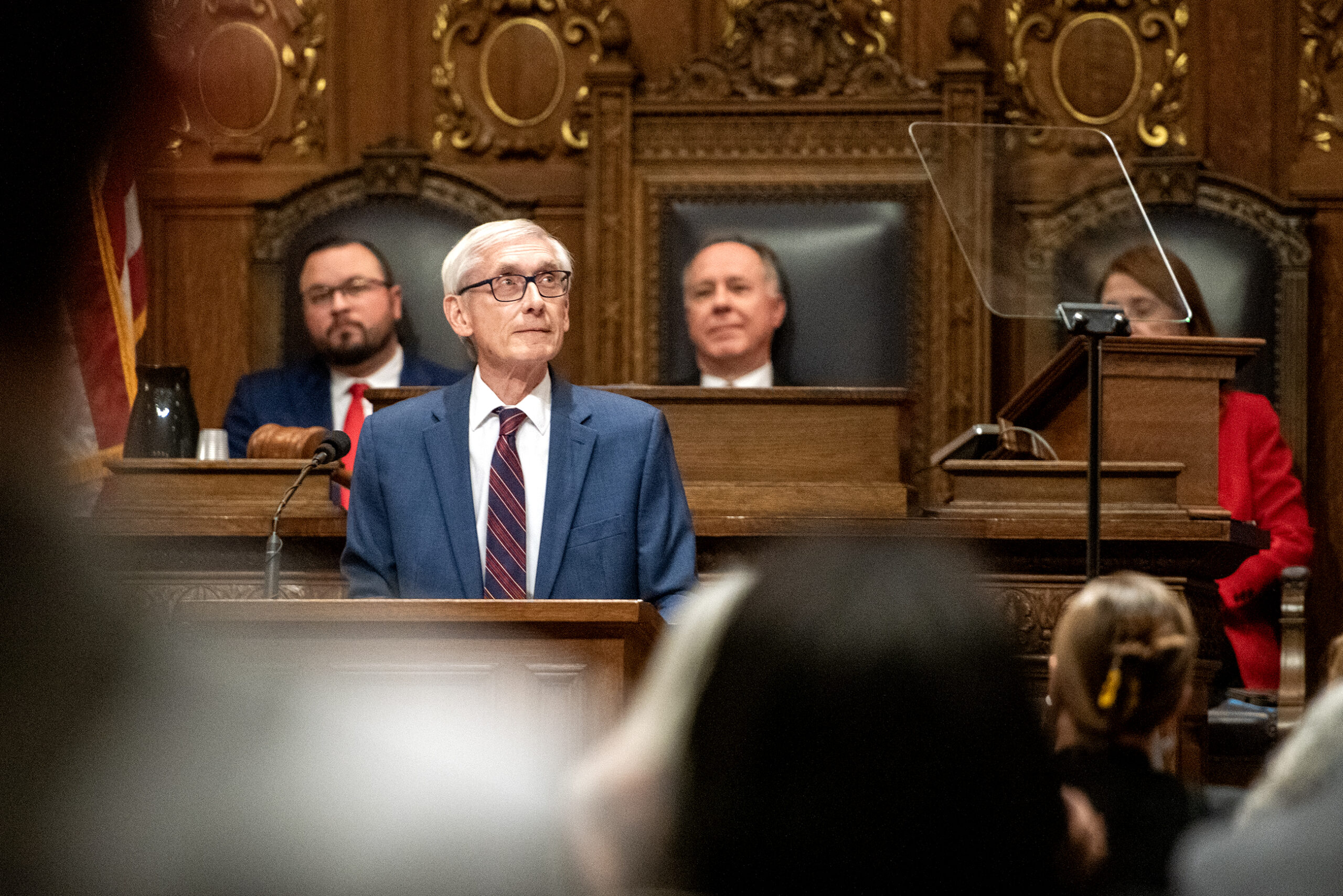Gov. Tony Evers threatened to veto a Republican-authored bill to fund local governments Thursday, saying it failed to deliver enough resources to communities that have struggled for years.
Evers’ veto threat suddenly cast doubt on whether the governor would reach a deal with Republicans who run the state Legislature, even at a time when both have been talking about the need for a rewrite of the state’s decades-old system of local government funding.
Evers and Republicans have both endorsed the idea of using 20 percent of the state’s sales tax revenue to fund local governments, which would boost their state funding for the first time in years. But the plan put forward by Republican lawmakers this week would attach a variety of new strings to the money and direct a larger percentage of it to smaller communities rather than to bigger cities. Milwaukee, and Milwaukee County, would gain the power to increase their local sales taxes, but only if they get approval from voters first.
Stay informed on the latest news
Sign up for WPR’s email newsletter.
Evers said he remains optimistic he’ll reach a deal with lawmakers because many of them have been talking about the need for local funding.
“But the state must step up more than what I’ve seen,” Evers said of the GOP shared revenue bill. “It’s why I can’t support the Republican plan as is — and frankly, I’ll veto it in its entirety. “
Evers said the bill did not include enough resources, urging lawmakers to increase the money that’s going to local governments.
“And frankly, also, let’s remove all those restrictions that the legislation was putting on those local folks,” Evers said.
The governor’s comments came as Republicans who run the state Assembly were moving quickly on their version of the local government funding bill. While lawmakers, the governor’s office and local government groups have negotiated the proposal for months, Assembly Republicans released a draft of the bill Tuesday ahead of a public hearing of the Assembly Committee on Local Government Thursday.
Evers announced his intentions shortly before the start of that hearing Thursday morning, prompting Rep. Todd Novak, R-Dodgeville, to mention the veto threat to the bill’s Republican sponsors.
“As soon as I hit the gavel, the governor put out a press release … threatening to veto this,” Novak said. “I just want to make this clear to everybody here. They’ve been involved. So we’re already starting the saber-rattling. And there will be some adjustments and changes to this bill, correct?”
“It’s part of the sausage-making, representative,” replied Sen. Mary Felzkowski, R-Irma, the lead author of the plan in the Senate.
Evers had originally proposed a rewrite of the shared revenue formula as part of his budget, which would give him broad powers to veto out piece of the plan he didn’t like, while still preserving the broad strokes.
GOP lawmakers took a different approach, moving the plan forward as a standalone bill. That would force Evers to either accept or reject the proposal that reaches his desk without using his veto to change it around the edges.
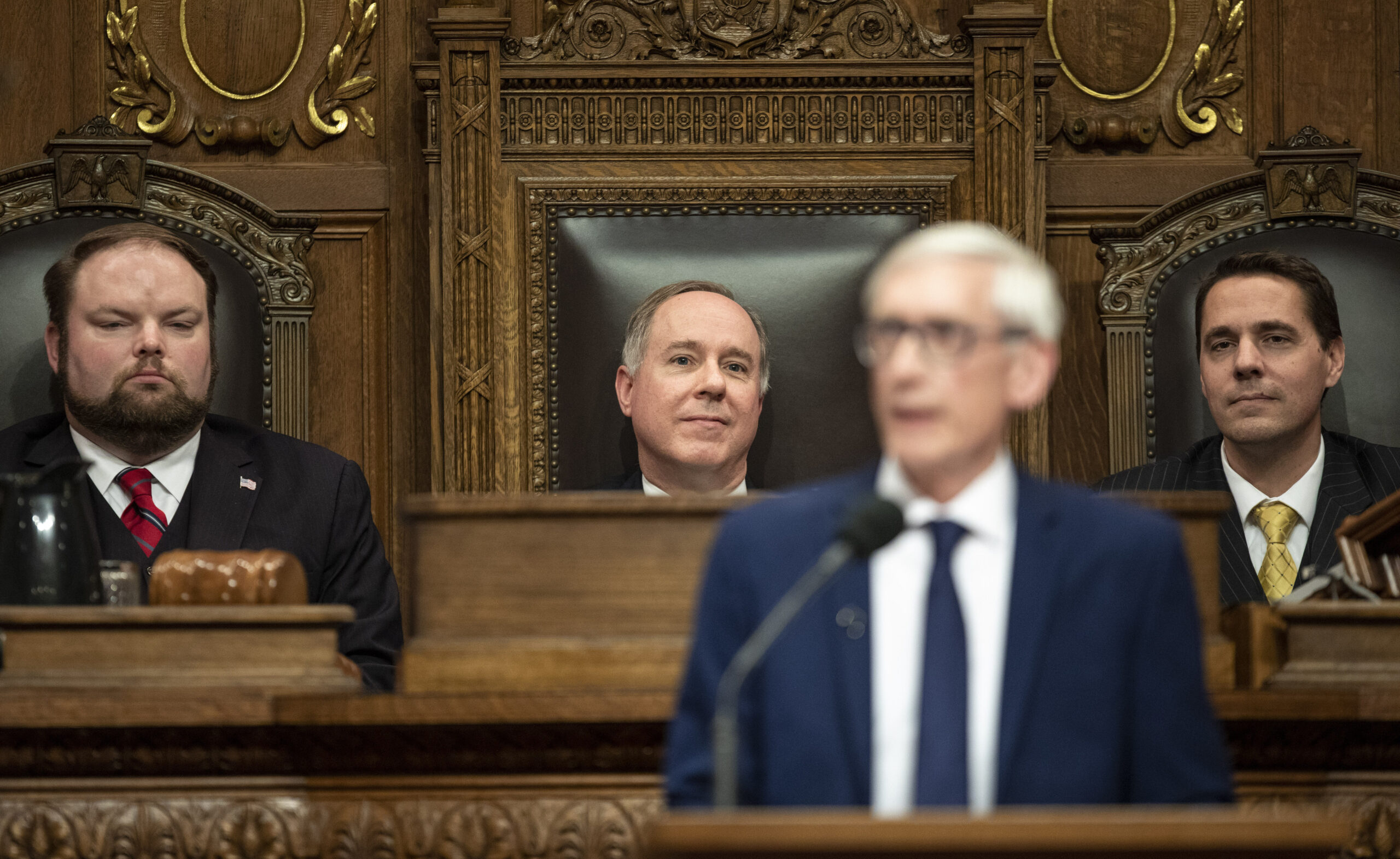
In a written statement responding to Evers’ threat, Assembly Speaker Robin Vos, R-Rochester, and Senate Majority Leader Devin LeMaheiu, R-Oostburg, said the proposal was the product of weeks of negotiations.
“It’s very disappointing to come so close to the finish line only to have the Governor publicly issue veto threats because he wants to spend more money,” read the statement from Vos and LeMahieu. “The most pressing issue here is the bankruptcy Milwaukee will face if this bill does not pass.”
Voter approval for Milwaukee sales tax a focal point during public hearing
While not specifically mentioned by Evers in his veto threat, much of the discussion at Thursday’s public hearing on the bill centered on whether to require Milwaukee voters to sign off on sales tax increases that are part of the local legislation.
The GOP plan would let the city of Milwaukee increase its sales tax by 2 percent and let Milwaukee County raise its sales tax by 0.375 percent. But both proposals would need approval from voters in referendums first.
Milwaukee Mayor Cavalier Johnson, who has worked closely with Vos and others to negotiate the local funding package, said he still had “serious concerns” about requiring referendums because they could fail.
“I don’t want Milwaukee to be in a position where we leave all this up to chance, and it all unravels or falls apart,” Johnson said.
Johnson said that if the local funding bill passes as is, and the referendums were to fail, the consequences would be dire.
“It would mean that there’ll be hundreds of police officers who would be let go,” Johnson said. “There’ll be hundreds of firefighters no longer on the job in Milwaukee. It means that there will be scores of general city employees who deliver services each and every single day throughout various departments who would not be doing that job. That’s not something that I want to leave to chance.”
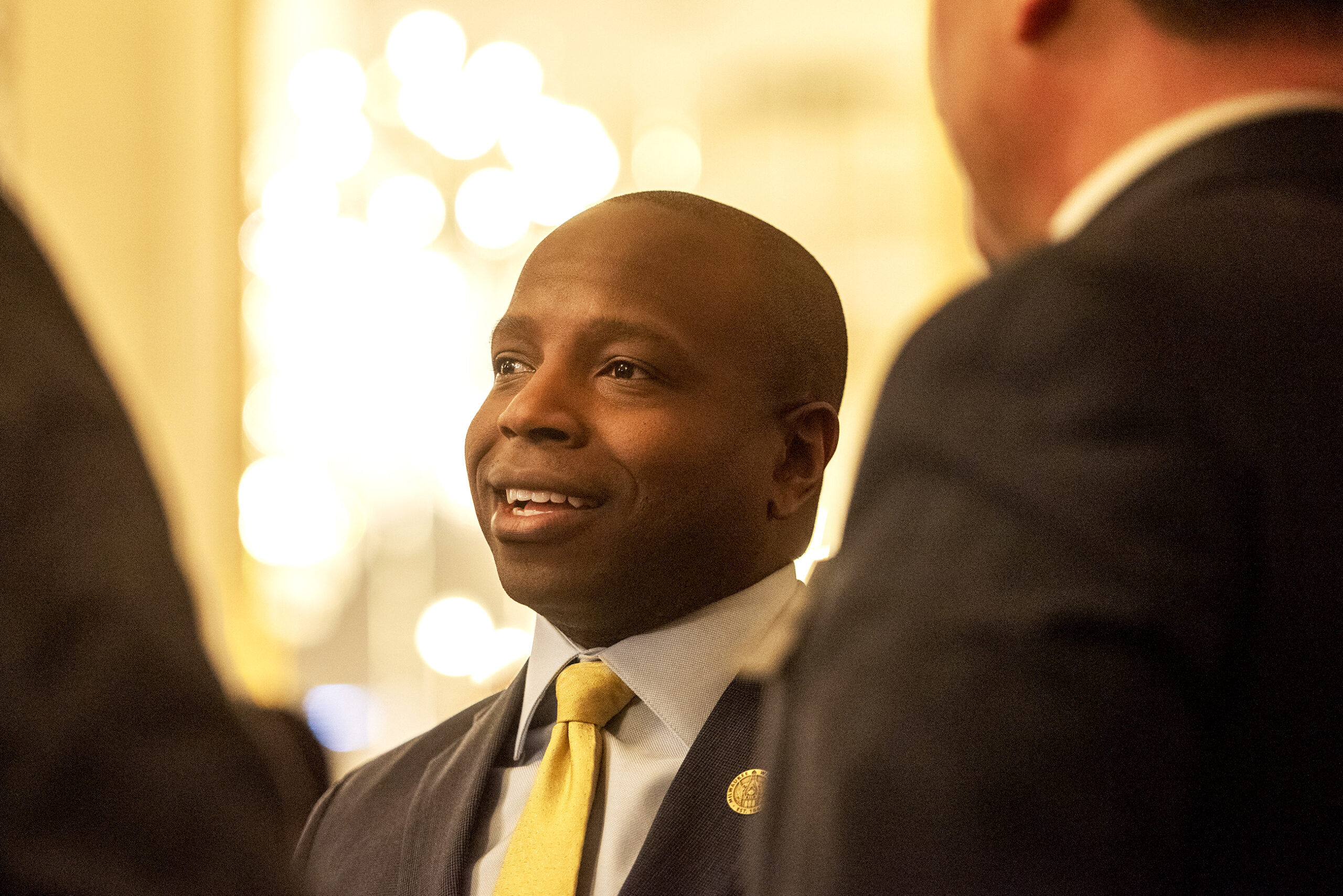
Felzkowski said earlier this week that the referendum requirement is one of the remaining sticking points in negotiations. She said she’s concerned about the consequences for Milwaukee if the referendum were to fail. But other GOP senators, like Sen. Steve Nass, R-Whitewater, feel differently.
“By authorizing new local option sales taxes for Milwaukee, we will have blindly kicked open the door to greater use of local option sales taxes for other communities in short order,” Nass said in a written statement Thursday. “If the regressive fiscal policy of creating new sales taxes for Milwaukee advances, it must be approved by a binding referendum vote of the local taxpayers.”
Local government leaders praise focus, say more funding still needed
Most local government leaders who testified on the plan Thursday praised lawmakers and other stakeholders for revisiting the state’s dated shared revenue formula, even as many of them said the bill’s funding did not go far enough.
The way the GOP bill is written, every community would see at least a 10 percent increase in state funding. Racine Mayor Cory Mason, whose city would see that 10 percent minimum increase, said he wanted lawmakers to consider one question.
“For the communities that get a 10 percent bump … the question I want you all to consider is, is that enough to keep those communities safe?” Mason said. “And in Racine’s case, the answer is no. It is not.”
Mason said if the state isn’t going to revisit its local funding formula more frequently, it needs to get it right this time. Under the GOP bill, Racine’s state funding would increase by about $2.5 million. Mason said Evers’ proposed shared revenue rewrite would have increased Racine’s state funding by $12 million.
“What would I do with that money? I would make payroll and keep the lights on,” Mason said.
In Green Bay, another city getting the 10 percent minimum increase, Mayor Eric Genrich also praised lawmakers for addressing local government funding. But Genrich said Evers’ plan would have increased his city’s funding by about $11 million compared to $1 million under the Republican bill.
“We really need a bit more investment to make some dramatic changes in how we do things in Green Bay,” Genrich said.
Part of the reason larger cities would see fewer dollars under the Republican plan is that a bigger percentage of the increase would go toward smaller communities. But town chairs said that increase needed to taken into context.
In the town of Gibraltar in Door County, for example, Chair Steve Sohns said his community would get a 397 percent increase under the GOP bill. That would amount to about $51,000.
“It’ll buy me an additional third of a police officer,” Sohns said. “We have significant stormwater problems that need to be taken care of. A 397 percent increase will not even fund a study to find out what the problem is.”
Rep. Novak said his committee would vote on the local government funding bill next week, likely Tuesday or Wednesday.
Wisconsin Public Radio, © Copyright 2025, Board of Regents of the University of Wisconsin System and Wisconsin Educational Communications Board.

